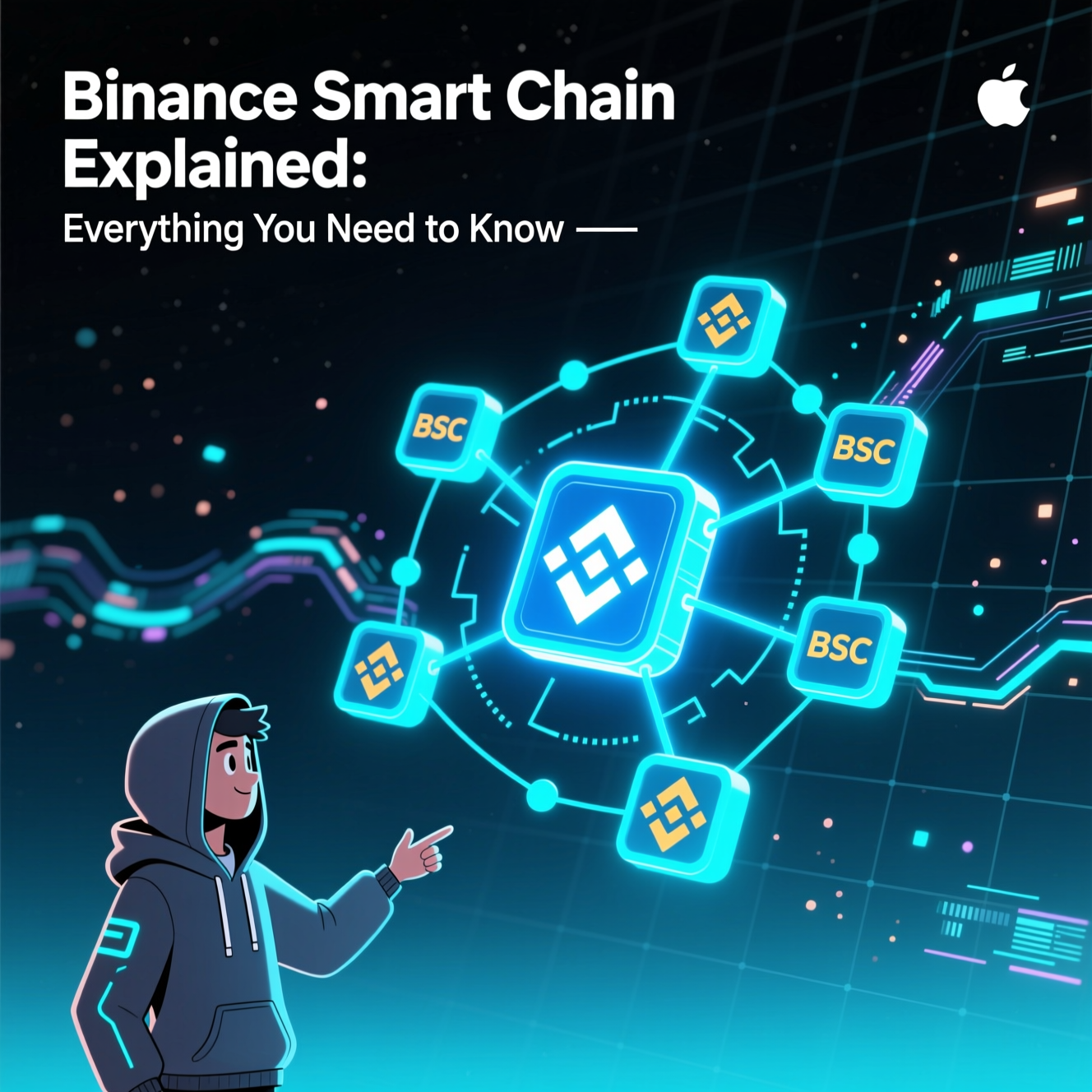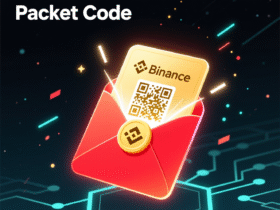As blockchain technology evolves, decentralized finance (DeFi) and smart contracts are becoming increasingly popular. One of the most innovative solutions in this space is the Binance Smart Chain (BSC). Launched by Binance, BSC is a blockchain network designed for fast, low-cost transactions and the development of decentralized applications (dApps). This article explains what BSC is, how it works, and why it matters.
What is Binance Smart Chain (BSC)?
Binance Smart Chain is a blockchain platform that runs in parallel with the original Binance Chain. While Binance Chain focuses on fast trading and high throughput for Binance DEX (decentralized exchange), BSC was developed to support smart contracts, enabling DeFi applications, NFT platforms, and more.
Key features:
- Compatibility with Ethereum Virtual Machine (EVM)
- Fast block times (~3 seconds per block)
- Low transaction fees compared to Ethereum
- Support for decentralized finance (DeFi), gaming, and NFT projects
How Binance Smart Chain Works
BSC uses a consensus mechanism called Proof of Staked Authority (PoSA), which is a combination of Proof of Stake (PoS) and Authority.
Key points:
- Validators: 21 validators are responsible for producing blocks. They are chosen based on the amount of BNB staked.
- Delegators: BNB holders can delegate their tokens to validators to earn staking rewards.
- Fast and Efficient: BSC allows high-speed transactions with minimal fees, making it suitable for dApps and DeFi protocols.
Advantages of Binance Smart Chain
- Low Transaction Fees
BSC transactions are much cheaper than Ethereum, making it ideal for small traders, DeFi users, and NFT creators. - Fast Confirmation Times
With a 3-second block time, BSC enables quick transactions, reducing delays for users and applications. - EVM Compatibility
Developers familiar with Ethereum can easily port their dApps to BSC without rewriting code, creating a large ecosystem of applications. - Wide Range of DeFi Projects
BSC hosts decentralized exchanges, lending platforms, yield farming projects, and NFT marketplaces, providing users with many options for participation. - Staking and Governance
BSC allows BNB holders to stake tokens and participate in governance decisions, helping maintain network security and decentralization.
Popular Projects on Binance Smart Chain
- PancakeSwap: A decentralized exchange (DEX) for swapping BEP-20 tokens.
- Venus Protocol: A lending and borrowing platform on BSC.
- BakerySwap: NFT marketplace and DeFi platform.
- Autofarm: Yield optimization aggregator for BSC users.
These projects illustrate the versatility and potential of BSC as a growing ecosystem for DeFi, NFTs, and more.
How to Use Binance Smart Chain
- Create a Compatible Wallet
Use wallets like MetaMask, Trust Wallet, or Binance Chain Wallet. Configure them to connect to BSC by adding the BSC network details. - Obtain BNB Tokens
BNB is used to pay transaction fees on BSC. Purchase BNB on Binance or transfer from another wallet. - Interact with dApps
Connect your wallet to BSC-based dApps to trade, lend, borrow, or participate in yield farming. - Stake BNB for Rewards
Users can stake BNB to validators and earn staking rewards while helping secure the network.
Risks and Considerations
While Binance Smart Chain offers many benefits, users should be aware of risks:
- Centralization Concerns: Only 21 validators produce blocks, which may reduce decentralization compared to Ethereum.
- Smart Contract Risks: Bugs or exploits in dApps can lead to loss of funds.
- Market Volatility: BNB and BEP-20 tokens are subject to price fluctuations.
- Regulatory Risks: DeFi projects operate in a fast-evolving regulatory environment.
Future of Binance Smart Chain
BSC continues to grow rapidly with new projects, partnerships, and innovations. Upcoming developments include:
- Enhanced scalability solutions
- More interoperability with other blockchains
- Support for new NFT standards and gaming applications
- Expansion of DeFi protocols and liquidity pools
Conclusion
Binance Smart Chain is a powerful, fast, and cost-effective blockchain network that is driving innovation in DeFi, NFTs, and decentralized applications. Its EVM compatibility, low fees, and staking opportunities make it an attractive platform for developers and users alike.
While risks exist, such as centralization and smart contract vulnerabilities, careful participation and due diligence can allow users to benefit from the growing BSC ecosystem. For investors, developers, and crypto enthusiasts, Binance Smart Chain offers exciting opportunities to engage with the future of decentralized finance.


